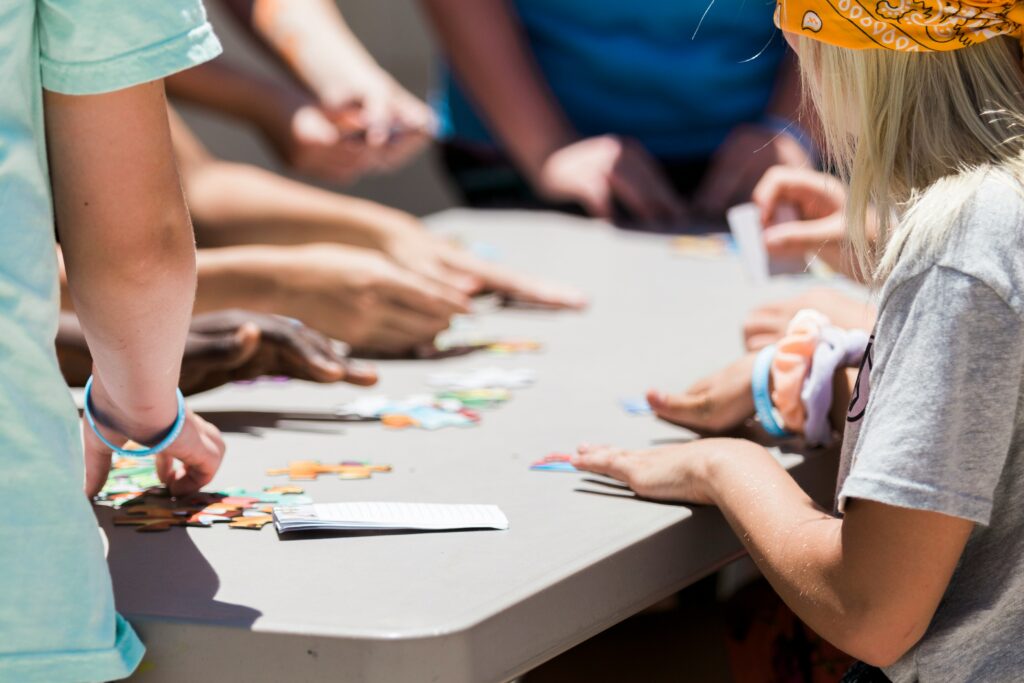
In the vibrant world of Monkey Ville Childcare, play isn’t just a pastime—it’s a powerful tool for communication skills development. From babbling with baby dolls to negotiating roles in pretend play scenarios, every playful interaction lays the foundation for language acquisition and social communication skills. In this blog post, we’ll explore the pivotal role of play in fostering communication skills at Monkey Ville Childcare, highlighting examples of play-based activities and interactions that nurture language development, vocabulary expansion, and social communication prowess.
The Power of Play:
- Language Acquisition: Play serves as a natural context for language learning, where children immerse themselves in rich and meaningful interactions with peers and educators. Through conversations, storytelling, and imaginative play, children experiment with language, mimic adult speech patterns, and gradually expand their vocabulary.
- Vocabulary Expansion: From naming colors and counting objects to describing emotions and narrating stories, play offers endless opportunities for vocabulary enrichment. At Monkey Ville Childcare, children engage in themed play areas, sensory bins, and literacy corners stocked with books, fostering curiosity and exploration of language in diverse contexts.
- Social Communication Skills: Play-based interactions provide a safe and supportive environment for children to practice turn-taking, sharing, and cooperative play. Through collaborative games, role-playing scenarios, and group activities, children learn to express their thoughts, listen to others, and navigate social interactions with confidence and empathy.
Examples of Play-Based Activities:
- Pretend Play: In the dramatic play area, children step into different roles and scenarios, from playing house to running a pretend restaurant. As they engage in imaginative storytelling and role-play, they experiment with language, develop narrative skills, and enhance their ability to express ideas and emotions.
- Storytime and Puppet Shows: Storytelling sessions and puppet shows captivate children’s imaginations and spark conversations about characters, plotlines, and moral lessons. Through interactive storytelling, children actively participate in the narrative, ask questions, and make predictions, honing their listening and comprehension skills.
- Sensory Exploration: Sensory play activities, such as exploring textured materials, playing with water and sand, and experimenting with sensory bins, stimulate language development through sensory-rich experiences. Children describe the textures, colors, and properties of materials, expanding their descriptive language and sensory vocabulary.
Fostering Language-Rich Environments:
At Monkey Ville Childcare, we recognize the transformative power of play in communication skills development. By creating language-rich environments, incorporating play-based learning opportunities, and nurturing meaningful interactions, we empower children to become confident communicators, effective collaborators, and lifelong learners.
Conclusion:
In the language of play, every interaction is a chance to learn, grow, and connect. At Monkey Ville Childcare, we celebrate the joy of playful learning and the endless possibilities it offers for communication skills development. Together, let’s embark on a playful journey where every word, gesture, and laugh becomes a stepping stone towards linguistic fluency and social adeptness.
